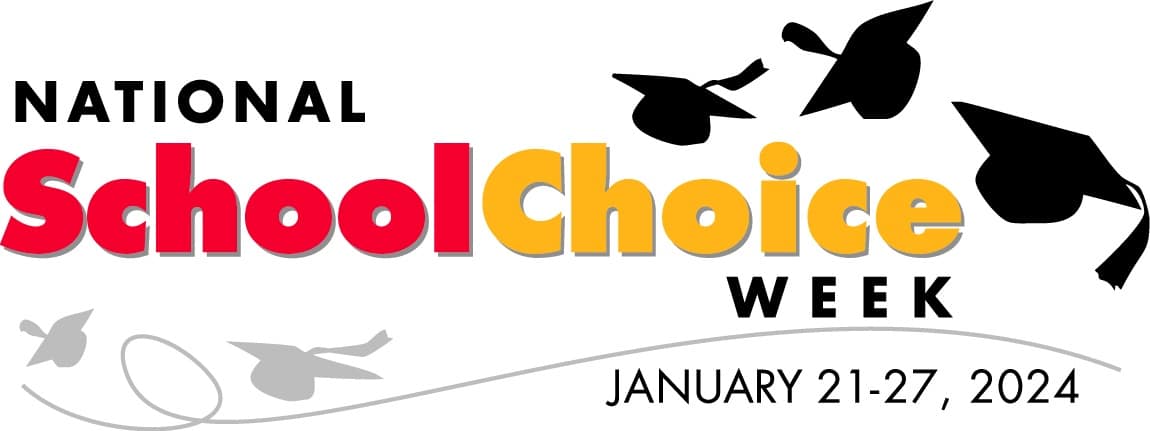
Tampa Bay Times
OPINION|
Guest Column
By: Erika Donalds
Florida’s school choice has come a long way, but it can go further.
The 12th annual National School Choice Week kicks off today, a time when our nation celebrates the incredible progress made in offering education freedom to families. While it is important to recognize progress — especially here in Florida, the No. 1 state for education freedom, according to the Heritage Foundation — too few parents across the country have access to the high-quality academic options their children deserve.
One of the biggest reasons is the absence of a true free market in our education system. A market economy, where individuals determine what to produce or consume, and where market forces determine prices for goods and services, results in better quality, more innovation and expanded access for parents and families. That’s currently lacking in our education system.
Our antiquated schooling model, complete with geographic assignment, fixed pricing and union-driven service, is far from the market economy model enjoyed in every other aspect of American life. But that is ripe for change. The COVID crisis revealed the magnitude of disparities families face when it comes to accessing high-quality education options. It pulled back the curtain on all schools and revealed many as inflexible, unimpressive and devoid of the ability to adapt to changing conditions.
As an education entrepreneur myself, I was determined to replicate the in-person learning experience as much as possible during COVID. Government schools, by contrast, shut their doors, foreclosing in-person instruction to children long after many of us believed it was safe to reopen. We created a robust online learning platform that delivered live classical liberal arts instruction daily and maintained a full school day schedule of activities. Click Here to Read More….
Parents whose children attended other schools at the time were asking to participate in our online program, and more than a hundred students’ families wanted to continue at-home learning after schools were back in-person. Today, that virtual platform is Optima Academy Online, the world’s first virtual reality school serving 900 students in Florida, Arizona, Iowa, North Carolina and Michigan.
That’s right: not just a virtual school, but a virtual reality school. And one that delivers the most in-demand academic content today — classical education.
As education choice expands, the market of innovative providers is rapidly following suit. Take CREATE Conservatory in Orlando, a micro-school where students acquire new knowledge and demonstrate mastery in traditional subjects using music, movement, theater, painting, sculpture and other art forms. Or SailFuture Academy, a private entrepreneurship high school for at-risk youth that leverages project-based learning, paid apprenticeships and a focus on the maritime business to prepare students for successful careers.
My dream is that these transformative educational options and the thousands of other similar opportunities around the country would become part of an education ecosystem, accessible by parents through education freedom programs like Florida’s Family Empowerment Scholarship, specifically the Personalized Education Program (PEP), which allows families to customize their children’s academic experience.
Unfortunately, the PEP is limited to just 20,000 students in year 1 and 40,000 in year 2. This flexible education scholarship account must be made universally available to stimulate the supply and expansion of quality, innovative options in our state. At the same time, policymakers should ensure that school choice funding is on par with appropriations for “traditional” public schools.
Ultimately, states should have one simple formula-funded mechanism that funds students directly and remains agnostic about the type of school or learning environment parents choose to direct those dollars toward. In other words, every child should simply be awarded an education savings account from day one.
America has yet to experience a true free market in education, so we cannot begin to imagine the innovative and outstanding options that entrepreneurial educators will launch if and when the government allows market forces to drive competition in this arena. According to EdChoice’s public opinion tracker, 71% of school parents support school choice programs. Only 43% say they prefer regular public schools to obtain the best education for their child. Freed from government-assigned schooling, parents will drive demand for excellent, tailor-made learning options for their children.
When it comes to education, we are in the era of large, 1980s brick-style cellphones, trying to imagine what a smartphone will be like. But that is rapidly changing, with more than half of states now having some form of school choice, and nine states, as of 2023, now having universal school choice options. This National School Choice Week, here’s to many more in 2024.
Erika Donalds is the CEO and Founder of OptimaEd and a Visiting Fellow with The Heritage Foundation.
